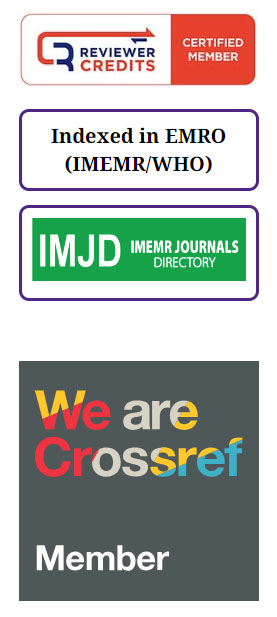Balanced diet and heart health
DOI:
https://doi.org/10.59119/ajms.2023.2.1Abstract
Heart disease is the largest cause of mortality worldwide, comprising a variety of disorders that impact the heart and circulatory system. The World Health Organization (WHO) estimates that 17.9 million deaths worldwide in 2019 were attributable to heart disease, accounting for 31% of all fatalities (1). This demonstrates the enormous toll this illness takes on world health. Genetics and age are two risk factors for heart disease
that cannot be changed, but diet is one important variable that can be changed. According to studies, unhealthy eating habits are strongly associated with an elevated risk of heart disease (2) (3). The accumulation of plaque in arteries that limits blood flow and raises the risk of heart attacks and strokes is known as atherosclerosis, and it can be brought on by consuming excessive amounts of cholesterol, salt, saturated and trans fats, and added sugars (2). Consumption of healthy fats, such as those found in avocados, olive oil, and seafood. These fats have anti-inflammatory effects and are associated with improved cholesterol profile (4). Elimination of processedmeals, sugar-filled beverages, and added salt. While additional sweets may cause weight gain and inflammation, both of which are risk factors for heart disease, excessive salt can raise blood pressure (4). The risk of heart disease can be greatly lowered by controlling diet and adopting a heart-healthy lifestyle. Recalling that little adjustments can have a significant impact. Reduced intake of processed foods and added sugars and increased intake of whole grains, fruits, vegetables and healthy fats in meals can enhance the quality of life and reduce the risk of heart disease. healthier and happier future of heart can be achieved by making food choices a priority.
Downloads
Published
Issue
Section
License
Copyright (c) 2024 Saira Syed, Naseer Ahmed (Author)

This work is licensed under a Creative Commons Attribution-NonCommercial 4.0 International License.






